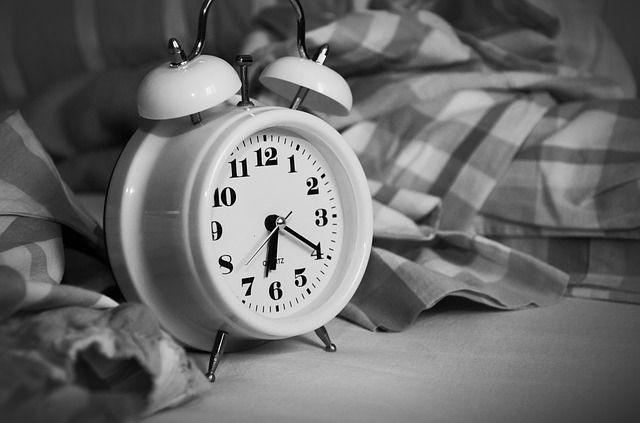Trouble Sleeping? Childhood Trauma And Abuse May Contribute To Insomnia In Adulthood

Sleep plays an essential role in our overall health; it's so vital that some studies have gone so far as to say that getting enough sleep is more important than food. For unknown reasons, however, sleep evades some people more than others. There are a number of factors that can contribute to insomnia, including stress and excessive alcohol consumption, but a new study suggests that previously unknown factors could be childhood trauma and abuse.
Most of us have had our fair share of restless nights, but for those who suffer from chronic insomnia, this seemingly endless trend carries over into lethargic days. Though the underlying causes of the condition are mostly unknown, the National Sleep Foundation reports that psychological and physiological health issues, substance abuse, and unhealthy sleep habits like working nights can all play a role. Insomnia often goes hand-in-hand with mental health illnesses like anxiety and depression, which then make it harder to break the cycle.
The team arrived at its conclusion after collecting data on the sleep habits and childhood experiences of 1,007 adults aged 22 to 60 who lived in the Philadelphia area. The volunteers were assessed with the Insomnia Severity Index, a questionnaire that measures the nature, severity, and impact of insomnia in adults. This test split the volunteers into one of three categories: healthy, mild insomnia, and moderate-severe insomnia. Volunteers were also asked to self-report psychosocial stressors, such as child abuse, parental divorce, death of a parent, or having a parent who suffers from depression or anxiety.
The results, presented this week at the Associated Professional Sleep Societies meeting in Denver, revealed that people who experienced childhood abuse, parental depression/anxiety, or divorces were more likely to have mild or moderate-severe insomnia. It was parental death, however, that was associated with the most severe insomnia symptoms.
Chronic insomnia, which affects up to 10 percent of the U.S. population, is a condition that can have adverse affects on both our mental and physical health. Sleep is our bodies' and our brains' time to rest and repair; it’s when our brains process and consolidate the information and complex stimuli we ingested during the day and prepares us to take more in the next day. During sleep, our blood flow also moves to the muscles, where it helps to repair the tissue. The National Institutes of Health reports that ongoing sleep deficiency increases risk of heart disease, kidney disease, high blood pressure, diabetes, stroke, and even obesity.
According to the researchers, the findings can help us develop better approaches to treating those who suffer from chronic insomnia. In a recent statement, lead author Karla Granados said, “The fact that events that happen during childhood can have an impact on sleep many years later can help us better understand how sleep is related to health and better target our efforts addressing sleep problems in the real world.”
Source: Granados K, Rojo-Wissar D, Chakravorty S. Adverse Childhood Exposures Associated With Adult Insomnia Symptoms. Sleep. 2016
Published by Medicaldaily.com



























